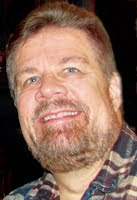The tough part is figuring out what you want to write about, researching it, and then deciding how to say it, editing, rewriting, editing and rewriting again, and then proofing your copy ... and, oh yeah, running it by a couple other people whose opinion you respect and asking them to tell you honestly what they really, really, really think about it.
All the while, remember never to write a sentence longer than 25 words, which is lots easier if you never use the words “and” or “then.” (Count that – the late-great William Safire, the 20th century’s premier authority on effective writing, once said “The most fun in breaking a rule is in knowing what rule you’re breaking.”)
Among Safire’s other admonitions to amateurs (and to pros who write like amateurs):
• Remember to never split an infinitive.
• The passive voice should never be used.
• Verbs have to agree with their subjects.
• A writer must not shift your point of view.
• Don't overuse exclamation marks!!
• Place pronouns as close as possible, especially in
long sentences, as of 10 or more words, to their antecedents.
• The adverb always follows the verb.
• The passive voice should never be used.
• Verbs have to agree with their subjects.
• A writer must not shift your point of view.
• Don't overuse exclamation marks!!
• Place pronouns as close as possible, especially in
long sentences, as of 10 or more words, to their antecedents.
• The adverb always follows the verb.
That’s a lot to remember right there – yet that’s but a miniscule portion of the advice of one man (who wrote several books and thousands of newspaper columns). You can spend a lifetime and your communications skills likely will never approach competency (let alone brilliance). So why try? Hire a pro (conflict of interest alert: I am one, and would be happy to be hired).
It probably occurs to you that pros are expensive. They’re hard to keep on track. They take their sweet time, particularly when paid by the hour. And did I mention they’re expensive? They cost a lot, and can suffer from redundancy, particularly when paid by the word. (And there’s no guarantee they know what rules they’re breaking.)
The best advice I can offer here goes back to the first three words above: “Writing is easy.” It’s all that other stuff that’s hard ... but if you’ve got a good idea about what you want / need to say, you can short-circuit a lot of shocking costs.
Give your hired gun with a well-thought-out rough draft, and access to research and background. Even if your prose is less than purple, your written input forces you to cull out the irrelevant and focus on the nitty-gritty.
That lets the pro concentrate his $125-an-hour time on the grammatical and stylistic subtleties most business people can’t provide. Chances are, you’ll spend less time writing the draft than you would have spent trying to tell the pro what you wanted ... and won’t have wasted the pro’s time (and your money) in the process.
We all know that every vendor operates best when given superior guidance and thoughtful supervision – that rule doesn’t change just because the vendor is “a creative type.”
Give your hired gun with a well-thought-out rough draft, and access to research and background. Even if your prose is less than purple, your written input forces you to cull out the irrelevant and focus on the nitty-gritty.
That lets the pro concentrate his $125-an-hour time on the grammatical and stylistic subtleties most business people can’t provide. Chances are, you’ll spend less time writing the draft than you would have spent trying to tell the pro what you wanted ... and won’t have wasted the pro’s time (and your money) in the process.
We all know that every vendor operates best when given superior guidance and thoughtful supervision – that rule doesn’t change just because the vendor is “a creative type.”
––––––––––––––––––––
Parting Shot(s): Two quotes, the first from William Safire (of course!!!): “If you re-read your work, you can find on re-reading a great deal of repetition can be avoided by re-reading and editing.” The second comes from Conan the Grammarian, the resident language-sculptor of the Rocky Mountain Fiction Writers: “If it sounds like Madison Avenue or Congress, it’s bad writing.”
Parting Shot(s): Two quotes, the first from William Safire (of course!!!): “If you re-read your work, you can find on re-reading a great deal of repetition can be avoided by re-reading and editing.” The second comes from Conan the Grammarian, the resident language-sculptor of the Rocky Mountain Fiction Writers: “If it sounds like Madison Avenue or Congress, it’s bad writing.”

No comments:
Post a Comment